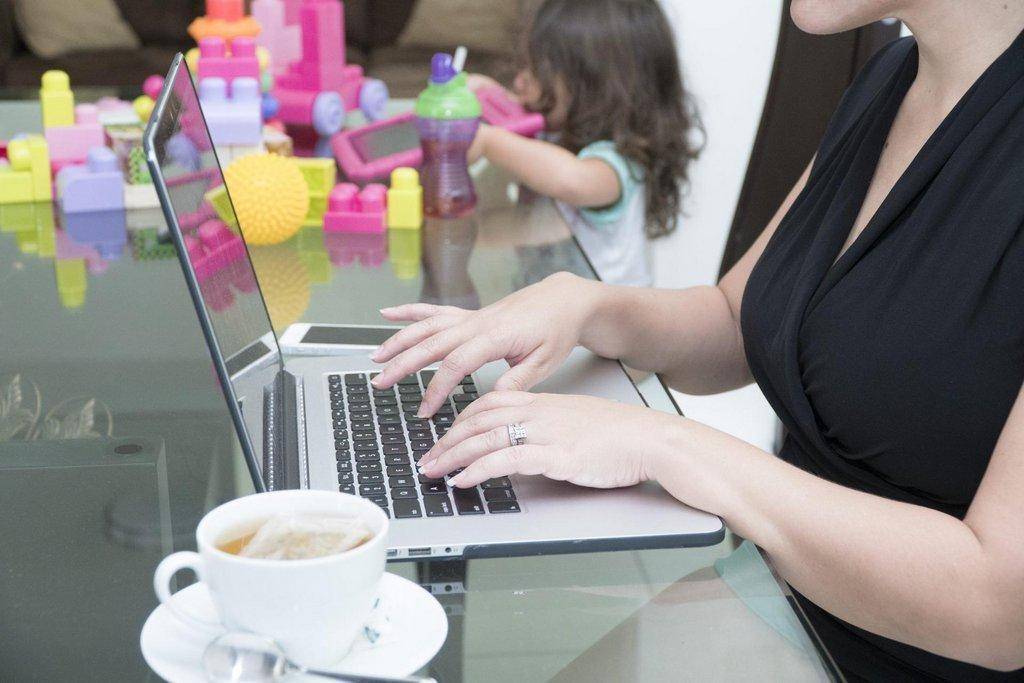By Julene Reese
Flexibility and family-friendly policies in the workplace increase employee productivity, engagement and overall satisfaction, according to a recent study by researchers from the Utah Women & Leadership Project (UWLP). The study, conducted in conjunction with Utah State University Extension and Utah Valley University, looked at data gathered from 100 of the best companies to work for in Utah, as reported in national and local rankings.
Researchers found that more than 94% of companies reported higher employee satisfaction as a result of offering flexibility and/or family-friendly arrangements to employees. It also showed that 92% of the best places of employment offer remote work or flexibility with work location, and 75% offered paid maternity leave. In larger companies of 500-999 employees, 100% offered paid maternity leave, and 91% offered paid paternity leave.
Companies that participated in the study were chosen from the “Best Places to Work in Utah” lists from the Salt Lake Tribune, Utah Business Magazine and the Women Tech Council Shatter List, as well as Utah companies listed in similar national rankings from Forbes and Glassdoor. Researchers contacted Utah businesses that have been publicly recognized for offering benefits to meet their employees’ needs.
Other study findings supporting flexibility and family-friendly arrangements include: increased employee retention, 79.8%; higher employee engagement, 71.9%; increased productivity, 65.2%; improved recruitment success/higher quality candidates, 60.1%; more diverse teams, 50.1%; more women in high levels of leadership, 47.2%; and increased profitability, 33.7%.
“COVID-19 has forced many across the world to transition to remote work, almost overnight,” said Susan Madsen, founding director of the UWLP and inaugural Karen Huntsman Endowed Professor of Leadership in USU’s Huntsman School of Business. “This phenomenon will likely revolutionize the way employees work moving forward. Many companies adjusted work practices and policies to support their employees during this challenging time, including flexibility and family-friendly policies; however, we are seeing such positive results from it that it may change the landscape for the future of employment.”
One study participant noted, “As many of our employees have transitioned to working from home during the pandemic, we have experienced increased productivity, satisfaction and retention. Although remote work wasn’t a strategic employment practice before the pandemic, it will be in the future.”
Robbyn Scribner, lead researcher for the study, said that generational attitudes began transforming the work landscape over the past decade.
“Millennial workers are more likely than Baby Boomers or Gen-X to consider workplace flexibility to be essential,” she said. “This shift, combined with a growing emphasis on the value of diversity within organizations, has motivated more companies to offer flexibility programs.”
Though the pandemic has brought challenges to working parents, the opportunity to disrupt outdated workplace norms can counterbalance these stressors and create new opportunities for women, the study showed.
“We learned that one area needing to be addressed is that, despite most companies offering family-friendly policies to support new parents, fewer than one-fifth of them provide childcare support,” Madsen said. “This relatively low percentage underscores the reality that childcare is one of the most complex challenges for working parents in Utah—and one that will require commitment from numerous stakeholders to address successfully. We hope to see that happen.”
The survey results can show other organizations how they can work to best meet their employees’ needs for flexible and family-friendly arrangements, Madsen said.
“With the effects of COVID-19 predicted to continue well into 2021, these benefits have never been more critical,” she said. “Such policies can be particularly valuable for women, as remote and flexible work are instrumental in their ability to stay engaged in the workforce while they shoulder family and other responsibilities.”
Scribner said the pandemic has shown companies that flexible employment does indeed work, and these policies will be a key advantage for businesses looking to attract top talent.
“As more and more companies embrace flexibility and family-friendly benefits, it will create additional opportunities for women’s workforce engagement, advancement and success, while still allowing women to prioritize their families and other areas of their lives,” she said. “This helps women and families, of course, but it also strengthens our businesses and communities. It’s a positive move for the whole state, which is why we hope to see many more companies moving in this direction.”
To see the full research study and a listing of the companies that participated, click here.

